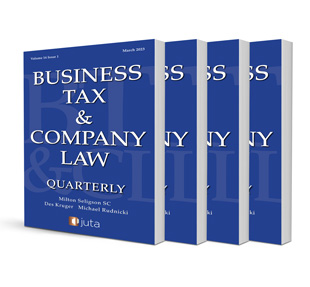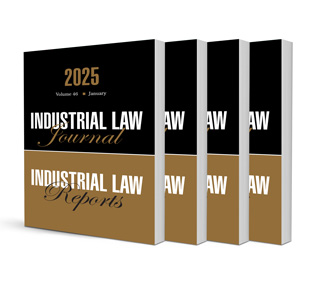The Conflict Between Director Reliance in the Companies Act and Director Liability in the JSE Listings Requirements

The Conflict Between Director Reliance in the Companies Act and Director Liability in the JSE Listings Requirements
Author: Siyabonga Nyezi
ISSN: 2219-1585
Affiliations: BCom (UCT), LLB (Unisa), Attorney of the High Court of South Africa
Source: Business Tax & Company Law Quarterly, Volume 16 Issue 3, 2025, p. 15 – 22
Abstract
In the film The Pursuit of Happyness, the protagonist, Chris Gardner, juggles the challenges of fatherhood on the one hand, with his failing attempts at an entrepreneurial breakthrough on the other. Throughout the film, each keeps getting in the way of the other, almost as if they cannot coexist. A missive on a film about a struggling entrepreneur and father is perhaps not the most conventional way to start an article on delegation and reliance in company law; but the purpose of the anecdote is to emphasise the concept of two attempts at doing the right thing getting in the way of each other – a central theme in this article’s analysis of the Financial Service Tribunal ruling in Munro v Johannesburg Stock Exchange (JSE2/2023) [2024] ZAFST 36. More specifically, this article examines the incongruence between the reliance provisions in section 76(5) of the Companies Act 71 of 2008, and the provisions relating to director liability in the JSE Listings Requirements (‘Listings Requirements’).
In Munro, the Financial Services Tribunal (‘Tribunal’) had to determine, inter alia, whether a (financial) director was liable to be sanctioned for a contravention of the Listings Requirements, resulting from misstatements in the company’s financial statements, where the director relied on information provided to him by other employees of the company. This article asserts that the provisions of the Companies Act and the Listings Requirements result in parallel and conflicting treatment of reliant director conduct. The article further argues that there are instances where the JSE Listings Requirements may unduly impose liability on directors who have, in line with section 76(5), relied on information provided to them by other employees.
